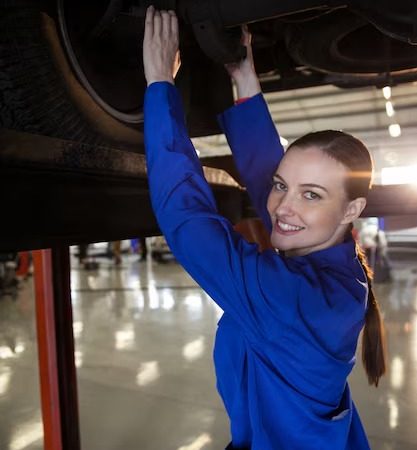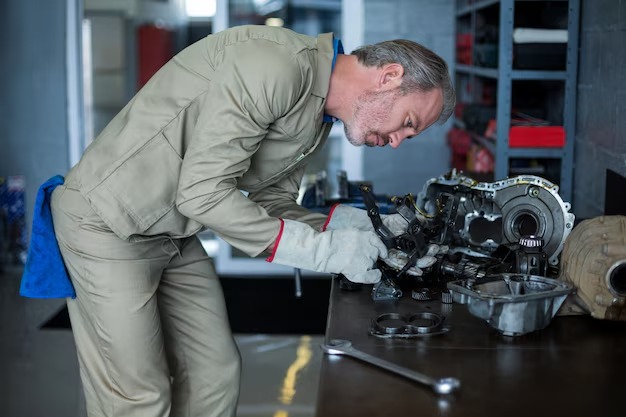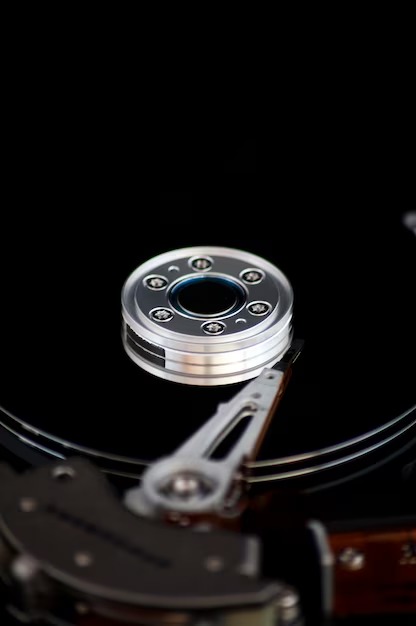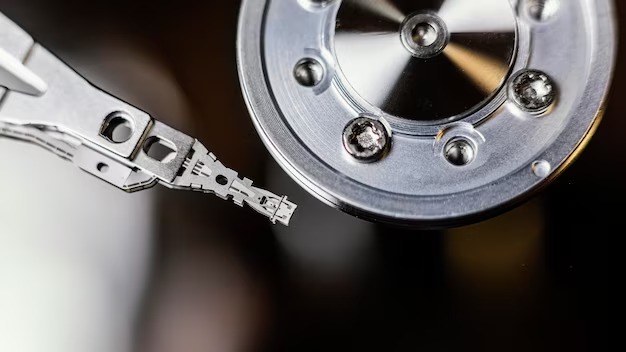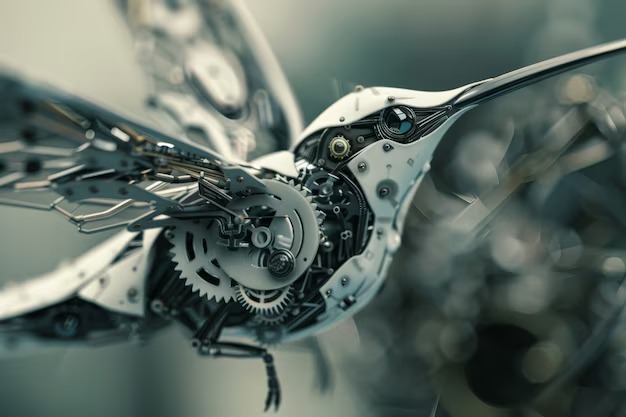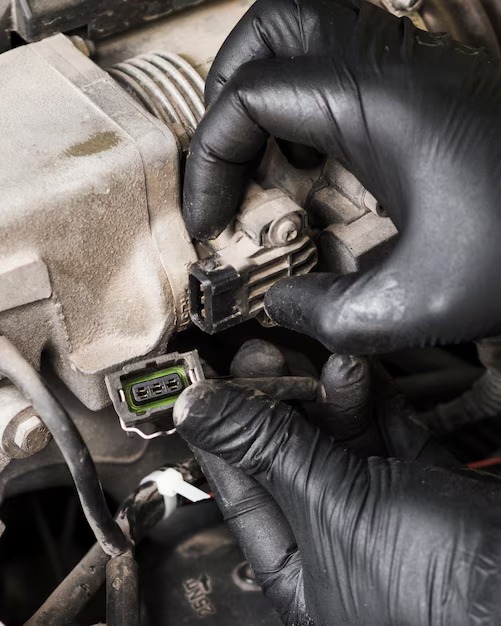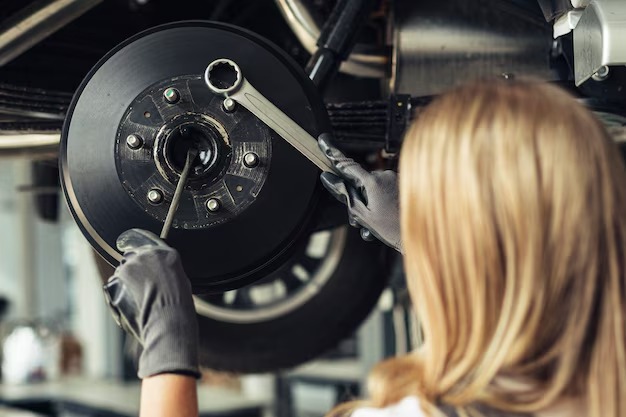How to Fix a Car Making Grinding Noise When Turning

One of the common issues that car owners may encounter is hearing a grinding noise when turning the steering wheel. This can understandably be a cause for concern and may indicate a problem with the vehicle. It is important to address this issue promptly to prevent further damage and ensure safe driving.
There are several possible reasons why a car may make a grinding noise when turning:
- Worn-out or damaged wheel bearings: Wheel bearings allow the wheels to rotate smoothly and can wear out over time. When they become damaged or worn out, they may produce a grinding noise when turning.
- Faulty CV joints: CV joints connect the drive shafts to the wheels and allow for flexibility during steering. If the CV joints are damaged or worn out, they may cause a grinding noise when the car is turning.
- Low power steering fluid: Insufficient power steering fluid can lead to a grinding noise when turning as the components may not be properly lubricated.
- Issues with the steering pump: Problems with the power steering pump, such as a worn-out or damaged pump, can also result in a grinding noise when turning.
It is important to have these issues addressed by a qualified mechanic to diagnose and fix the underlying problem. Neglecting such issues can lead to further damage to the vehicle and compromise safety on the road.
What Causes a Grinding Noise When Turning?
There are several potential causes for a grinding noise when turning your car, and it’s important to diagnose the issue promptly to avoid further damage to your vehicle.
1. Worn out brake pads or rotors: If you hear a grinding noise when turning, especially when applying the brakes, it could be a sign that your brake pads or rotors are worn out. This can occur over time due to normal wear and tear, and it’s important to have them replaced as soon as possible to ensure your brakes function properly.
2. Faulty wheel bearings: Wheel bearings are responsible for allowing your wheels to spin freely. If they become worn out or damaged, you may hear a grinding noise when turning. It’s essential to address this issue promptly, as failing wheel bearings can lead to serious safety concerns.
3. Steering system problems: Issues with your car’s steering system, such as a worn-out power steering pump or loose components, can cause a grinding noise when turning. It’s essential to have your steering system inspected and repaired if necessary to prevent further damage.
4. CV joint failure: The CV joints in your car connect the transmission to the wheels and allow for smooth turning. When these joints become worn out or damaged, you may hear a grinding noise when turning. It’s crucial to have the CV joints inspected and replaced if needed to prevent further complications.
5. Other potential issues: In some cases, a grinding noise when turning may be caused by other factors, such as worn-out suspension components, low power steering fluid, or a damaged differential. It’s important to have a professional mechanic diagnose the exact cause to address the issue properly.
| Possible Causes | Symptoms |
|---|---|
| Worn out brake pads or rotors | – Grinding noise when turning, especially when applying the brakes – Reduced braking performance |
| Faulty wheel bearings | – Grinding noise when turning – Excessive play or looseness in the wheels |
| Steering system problems | – Grinding noise when turning – Difficulty steering |
| CV joint failure | – Grinding noise when turning – Clicking or popping sounds when turning |
Worn Out Brake Pads
If you notice a grinding noise when turning your car, one possible cause could be worn out brake pads. Brake pads are an essential component of your car’s braking system and are responsible for helping your car slow down and stop when needed. Over time, brake pads can become worn out due to regular use and friction.
When brake pads wear down, the metal backing plates can come into contact with the brake rotor, leading to a grinding noise. This noise can be especially noticeable when turning, as the wheels are in motion and the car’s weight shifts to one side.
If you suspect that worn out brake pads are causing the grinding noise when you turn your car, it is important to have them inspected and replaced as soon as possible. Driving with worn out brake pads can not only lead to further damage to your car’s braking system but also compromise your safety on the road.
Regular maintenance and inspection of your car’s brake pads can help prevent them from wearing out prematurely. It is important to have your brake pads checked regularly and replaced when necessary to ensure optimal braking performance and your safety while driving.
- If you are experiencing a grinding noise when turning your car, consider checking the condition of your brake pads.
- Look for signs of wear, such as reduced thickness or uneven wear patterns.
- If the brake pads are worn out, have them replaced by a qualified mechanic.
- Remember, taking care of your car’s braking system is crucial for your safety and the well-being of your vehicle.
Faulty Wheel Bearings
One possible cause of a grinding noise when turning could be faulty wheel bearings. Wheel bearings are responsible for enabling smooth rotation of the wheels and reducing friction between the wheel and the axle. Over time, these bearings can wear out or become damaged, leading to a grinding noise.
When wheel bearings are faulty, you may notice a grinding or growling noise coming from the wheels, especially when making turns. The noise may get louder as you accelerate or decelerate, and it may also change when you shift the weight of the vehicle. In some cases, you may even feel vibrations in the steering wheel or excessive play in the wheel.
If you suspect that your wheel bearings are the cause of the grinding noise, it is important to have them inspected and replaced as soon as possible. Ignoring this issue can lead to further damage and potentially even a wheel coming off while driving.
A qualified mechanic will be able to diagnose the issue and determine if the wheel bearings need to be replaced. This typically involves lifting the vehicle and inspecting the bearings for any signs of wear or damage. If necessary, the old bearings will be removed and new ones installed to restore smooth and quiet operation of the wheels.
Regular maintenance and lubrication of the wheel bearings can help prolong their lifespan and prevent premature wear. It is also important to keep an eye out for any signs of trouble, such as excessive noise or vibrations, and address them promptly to avoid further damage to the vehicle.
In conclusion, faulty wheel bearings can be a possible cause of a grinding noise when turning. If you suspect that your wheel bearings may be the culprit, it is best to have them inspected and replaced by a qualified mechanic to ensure the safety and performance of your vehicle.
Damaged CV Joint
If the grinding noise occurs primarily when turning, it could be a sign of a damaged CV joint. Your car’s CV (constant velocity) joint is responsible for transmitting power from the transmission to the wheels, while also allowing for flexibility and rotation during turns.
A CV joint is covered by a rubber boot that is filled with grease to prevent dirt and debris from entering and damaging the joint. Over time, the boot may become worn or damaged, allowing the grease to escape and dirt to enter. This can lead to the CV joint becoming dry and damaged, resulting in a grinding noise when turning.
Other signs of a damaged CV joint include clicking or popping noises when turning, vibrations during acceleration, or a clunking sound when shifting between gears. If left unaddressed, a damaged CV joint can eventually fail, causing your car to lose power and possibly leading to a breakdown.
If you suspect a damaged CV joint is causing the grinding noise when turning, it is important to have it inspected and repaired by a qualified mechanic. They will likely need to replace the CV joint and boot to restore proper function and prevent further damage.
Prevention tips:
To help prevent damage to your car’s CV joint and avoid grinding noises when turning, it is important to maintain the rubber boots and ensure they are free from tears or cracks. Regularly inspect the boots during routine maintenance and have them replaced if any damage is found.
Additionally, avoiding rough terrain or potholes can minimize the risk of damaging the CV joint. When driving over bumps or uneven surfaces, it is best to do so slowly and avoid sharp turns.
Keeping your car’s overall suspension and steering components in good condition can also help prevent unnecessary stress on the CV joints. Regularly check for worn or damaged parts and have them replaced as needed.
By taking these preventative measures and addressing any issues promptly, you can help extend the lifespan of your car’s CV joints and avoid the grinding noise when turning.
Loose or Worn Power Steering Belt
If your car is making a grinding noise when turning, one possible cause could be a loose or worn power steering belt. The power steering belt is responsible for transferring power from the engine to the power steering pump, which helps you turn the steering wheel with ease. Over time, the belt can become loose or worn out, causing it to slip or make a grinding noise.
To check if the power steering belt is loose, you can visually inspect it for any signs of wear or tension. If the belt is loose, you may need to tighten it or replace it altogether. It’s important to address this issue as soon as possible, as a loose or worn power steering belt can affect the performance of your power steering system and make it more difficult to steer the vehicle.
If you’re not sure how to check or replace the power steering belt yourself, it’s best to consult a professional mechanic. They will have the expertise and tools to diagnose and fix the problem correctly. Additionally, they may also inspect other components of the power steering system, such as the power steering pump or fluid, to ensure everything is in proper working order.
Regular maintenance and inspections of the power steering belt can help prevent issues like a loose or worn-out belt. It’s important to follow the manufacturer’s recommended maintenance schedule and have the belt inspected or replaced as needed. By doing so, you can ensure the proper functioning of your power steering system and avoid potential problems down the road.
Conclusion
A loose or worn power steering belt can be one of the reasons why your car is making a grinding noise when turning. It’s important to address this issue promptly to avoid further damage to your vehicle’s power steering system. If you’re unsure about how to fix or diagnose the problem yourself, it’s best to consult a professional mechanic for assistance.
Problems with the Suspension System
Your car’s suspension system plays a vital role in ensuring a smooth and comfortable ride. However, if you are experiencing a grinding noise when turning, it could be an indication of issues with your suspension system. Here are some common problems that can cause this noise:
- Worn-out ball joints: The ball joints in your car’s suspension system connect the control arms to the steering knuckles. Over time, the ball joints can wear out, causing excessive play and allowing metal parts to grind against each other.
- Worn-out bushings: Bushings are components that provide cushioning and support in the suspension system. If the bushings become worn or damaged, they can cause metal-to-metal contact, resulting in a grinding noise.
- Worn-out wheel bearings: The wheel bearings are responsible for allowing the wheels to rotate smoothly. If the wheel bearings become worn out, they can produce a grinding noise when turning.
- Loose or damaged suspension components: If any of the suspension components, such as the control arms or tie rods, become loose or damaged, they can cause vibrations and noise when turning.
- Improperly lubricated components: Certain parts of the suspension system, such as ball joints and bushings, require lubrication to operate smoothly. If these components are not properly lubricated, they can cause grinding noises when turning.
If you are experiencing a grinding noise when turning, it is important to have your suspension system inspected by a qualified mechanic. They can identify the underlying cause of the noise and recommend the necessary repairs to restore proper functionality and ensure your safety on the road.
Low or Contaminated Power Steering Fluid
If your car is experiencing a grinding noise when turning, one possible cause could be low or contaminated power steering fluid. Power steering fluid is essential for smooth and proper functioning of your car’s power steering system. It helps to lubricate and provide hydraulic pressure to the steering components.
Low power steering fluid levels can lead to a loss of hydraulic pressure, causing the power steering system to work harder and create a grinding noise when turning. This can happen if there is a leak in the system or if the fluid hasn’t been changed or topped up regularly.
Contaminated power steering fluid can also contribute to a grinding noise. Over time, the fluid may become contaminated with dirt, debris, and moisture, which can affect its ability to properly lubricate the steering components. This can result in increased friction and grinding sounds when turning the steering wheel.
If you suspect that low or contaminated power steering fluid is the cause of the grinding noise in your car, it’s important to check the fluid level and condition. Locate the power steering fluid reservoir under the hood and check the level using the dipstick or the markings on the side of the reservoir.
How to check power steering fluid level:
- Park your car on a level surface and turn off the engine.
- Locate the power steering fluid reservoir, which is typically near the engine and labeled with a steering wheel symbol.
- Remove the cap of the reservoir and wipe the dipstick clean.
- Insert the dipstick back into the reservoir and pull it out again to check the fluid level. The dipstick will have markers indicating the minimum and maximum levels.
- If the fluid level is below the minimum mark or appears dirty and contaminated, it is recommended to add or replace the power steering fluid.
If you’re unfamiliar with checking or replacing power steering fluid, it’s best to consult your car’s owner manual or seek professional assistance. Adding the wrong type of fluid or performing the task incorrectly can cause further damage to the power steering system.
Regular maintenance of the power steering system, including checking and topping up the fluid, can help prevent issues such as low or contaminated power steering fluid and reduce the likelihood of a grinding noise when turning.
Misaligned Wheels
If your car is making a grinding noise when turning, it could be due to misaligned wheels. When your wheels are not properly aligned, they can cause friction and wear on the tires, leading to a grinding noise. Misaligned wheels can occur as a result of hitting potholes, curbs, or other objects on the road. Additionally, worn-out suspension components or steering linkage can also contribute to wheel misalignment.
It’s important to get your wheels realigned by a professional mechanic to prevent further damage and ensure a smooth and safe driving experience. During a wheel alignment service, the mechanic will adjust the angles of the wheels to align them properly with the vehicle’s specifications. This will help evenly distribute the weight and pressure on the tires, reducing the grinding noise and improving overall handling.
Ignoring misaligned wheels can lead to uneven tire wear, decreased fuel efficiency, and poor vehicle performance. It can also put unnecessary stress on other components of the suspension and steering system, leading to more expensive repairs down the line. Therefore, if you notice a grinding noise when turning, it’s best to have your wheels inspected and realigned as soon as possible.
In conclusion, misaligned wheels can be a common cause of a grinding noise when turning. Getting your wheels realigned by a professional mechanic will not only eliminate the annoying noise but also ensure the longevity and performance of your tires and the overall safety of your vehicle.
Note: It’s always important to consult with a certified mechanic to diagnose and properly address any issues with your car.
Issues with the Differential
One potential cause of a grinding noise when turning could be a problem with the differential. The differential is a crucial component of a car’s drivetrain that allows the wheels to rotate at different speeds while turning. It is responsible for transferring power from the engine to the wheels, ensuring smooth and controlled maneuvers.
Over time, the differential can experience wear and tear, leading to various issues that can cause a grinding noise when turning. One possible problem is worn-out bearings within the differential. These bearings support the rotation of the gears and can wear down due to prolonged use or lack of lubrication. When the bearings become worn, they can create a grinding or whining noise when the car is turning.
Another potential problem is a lack of lubrication in the differential. The differential relies on oil or fluid to keep the gears properly lubricated, reducing friction and preventing excessive wear. If the fluid becomes low or contaminated, it can result in metal-on-metal grinding noises when turning.
In addition, a damaged or worn differential gear can also cause a grinding noise. The gears in the differential can become damaged due to excessive pressure, debris, or lack of maintenance. When the gears are damaged, they may not properly mesh with each other, resulting in grinding or clunking noises when turning.
If you suspect an issue with the differential is causing the grinding noise when turning, it is important to have it inspected and repaired by a qualified mechanic. They can diagnose the exact problem and recommend the appropriate repairs or replacements. Ignoring or delaying differential issues can lead to further damage and potentially compromise the safety and performance of your vehicle.
Question-Answer:, Car makes grinding noise when turning
What could be causing a grinding noise when I turn my car?
There are several possible causes for a grinding noise when turning your car. It could be due to worn out brake pads or rotors, a problem with the power steering system, suspension issues, or worn out wheel bearings. It’s best to have a professional mechanic inspect your car to determine the exact cause of the noise.
Can low power steering fluid cause a grinding noise when turning?
Yes, low power steering fluid can cause a grinding noise when turning. When the power steering fluid is low, it can lead to insufficient lubrication of the power steering system, causing metal-on-metal contact and resulting in a grinding noise. It’s important to check the power steering fluid level and have it topped up if necessary.
Is it dangerous to drive a car that is making a grinding noise when turning?
Driving a car that is making a grinding noise when turning can be dangerous, as it could indicate a serious mechanical issue. If the cause of the noise is related to the brakes, suspension, or steering system, it can affect the overall handling and control of the vehicle. It’s advisable to have the car checked by a professional mechanic as soon as possible to ensure safe driving.
How much does it cost to fix a grinding noise when turning?
The cost to fix a grinding noise when turning can vary depending on the cause of the issue and the specific repairs needed. If it’s a relatively simple fix like replacing worn out brake pads or adding power steering fluid, the cost may be lower. However, if it requires more extensive repairs like replacing wheel bearings or fixing suspension components, the cost can be higher. It’s best to consult with a mechanic to get an accurate estimate for your specific situation.
Can I try to fix the grinding noise myself, or should I take it to a mechanic?
If you have experience and knowledge in car repairs, you may be able to fix the grinding noise yourself depending on the cause. However, if you’re unsure or don’t have the necessary tools and expertise, it’s generally recommended to take the car to a mechanic. They have the proper diagnostic equipment and experience to accurately identify and fix the issue, ensuring it’s done correctly and safely.
Why is my car making a grinding noise when turning?
If your car is making a grinding noise when turning, it is likely due to a problem with the wheel bearings. Wheel bearings are responsible for allowing the wheels to rotate smoothly and any damage to them can cause a grinding noise. It is important to have your car inspected by a mechanic to determine the exact cause of the noise and to prevent further damage.
How can I fix the grinding noise when turning?
The best course of action to fix the grinding noise when turning is to have your car inspected by a professional mechanic. They will be able to identify the exact cause of the noise and provide the necessary repairs. If it is determined that the wheel bearings are the issue, they may need to be replaced. Attempting to fix the problem yourself without the proper knowledge and tools can lead to further damage to your car.

